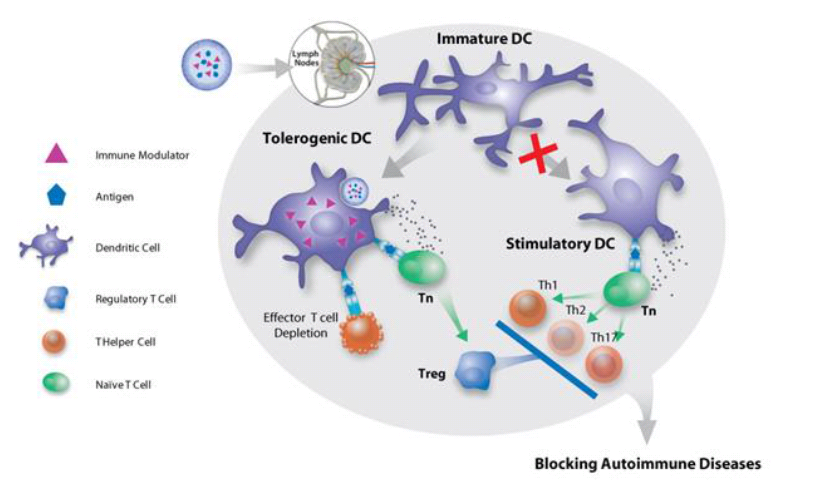Re-educating the Immune System in T1D
JDRF partner Selecta developed a novel technology for creating a T1D vaccine to potentially halt the disease process
It has been more than 30 years since scientists identified the basic autoimmune feature of type 1 diabetes (T1D) when they discovered autoantibodies binding to targets from cells in the pancreas. And yet, devising therapies to halt or reverse the misguided immune system attack on insulin-producing beta cells has proven to be a slow and challenging process.
The earliest immune-focused therapies tested in people with T1D were non-specific immune therapies designed to act broadly in suppressing the immune system response. From early trials using immunosuppressive agents commonly used in transplant patients, such as cyclosporine, to more recent studies using drugs that target discrete receptors on immune cells, such as anti-CD3, anti-CD20 and anti-CTLA4, results in T1D have been mixed. In general they have had only a modest effect in maintaining or improving beta cell function in subsets of study participants. Some studies are continuing in an attempt to define some situations for their potential beneficial use in T1D and the potential to use some of these approaches in combination therapies continues to be an area of interest.
In parallel, scientists have made significant progress identifying the major genes associated with T1D and even more importantly specific proteins or parts of proteins to which the immune system is over-reacting in this disease. These autoimmune triggers are called autoantigens. This basic research progress and the limited success of broad immune therapies coupled with their safety risks have shaped the current, more targeted JDRF strategy toward the development of antigen-specific immune therapies. This approach is designed to target only the specific components contributing to the immune response in T1D, leaving the overall immune system intact and functioning to respond normally to routine infections. Antigen-specific immune therapies may include vaccines that induce or restore tolerance to the T1D autoantigens by re-educating the immune system to stop attacking beta cells that produce these autoantigens. This is similar in principle to giving allergy shots to an allergy sufferer to stop the allergic response.
In a recent publication in the prestigious scientific journal, Proceedings of the National Academy of Sciences, JDRF partner Selecta published the details of a novel technology that is being used to develop a vaccine for the induction of immune tolerance in people with T1D. Their technique involves creating tiny packages called nanoparticles containing the T1D antigens and immunomodulatory agents that ultimately reach the key cells of the immune system and trigger the re-education process. Selecta is one of the leaders in the development of antigen-specific immune tolerance therapies and their approach holds great promise for T1D. With recently renewed support from a JDRF-Sanofi partnership, Selecta is set to begin testing this antigen-specific immune therapy in mouse models of T1D. If successful, this could pave the way for pilot clinical studies and ultimately a means to restore normal immune function and halt the T1D disease process.
For more information or to support the JDRF restoration research program, please click here.
